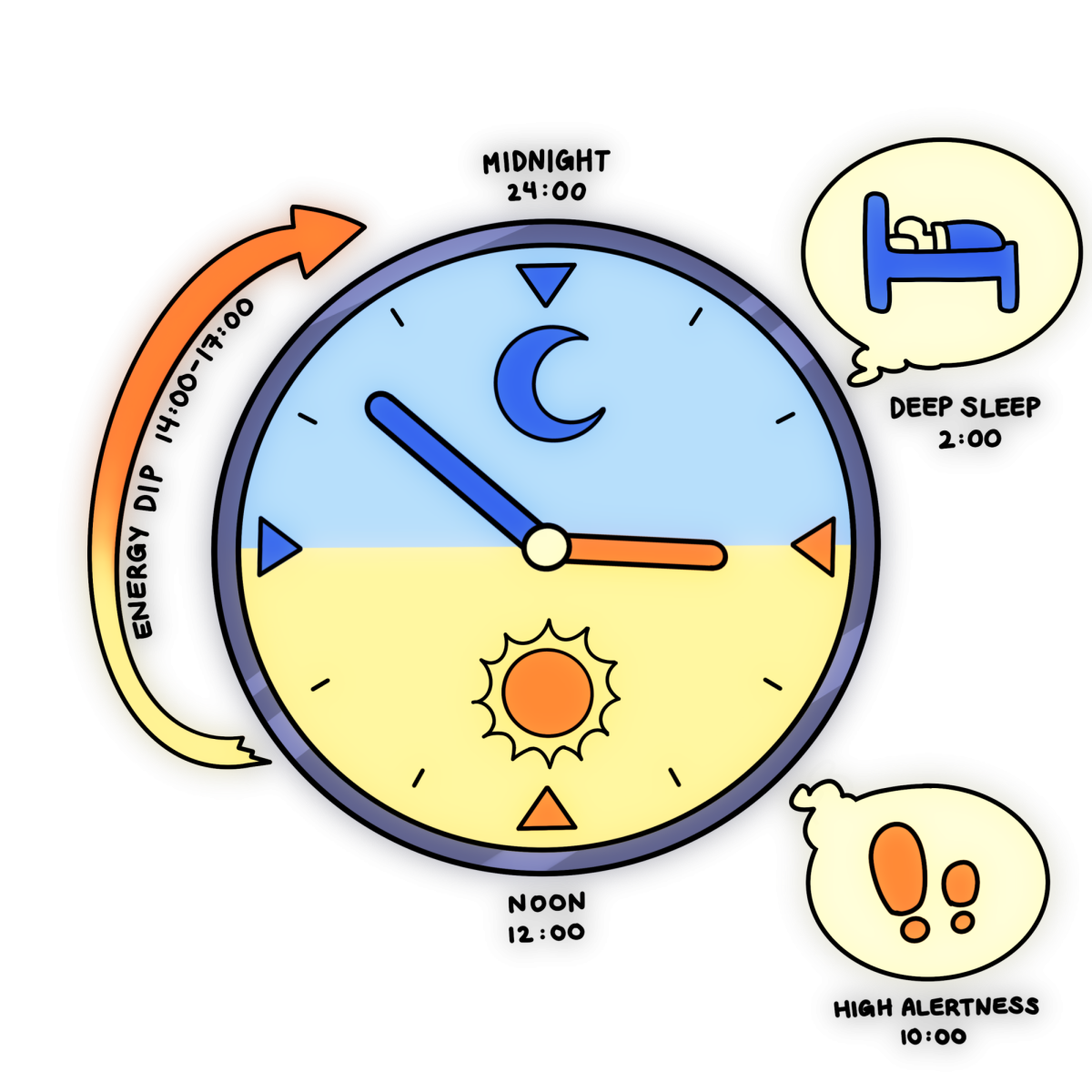Sophomore Aashi Agarwal jerks awake as her alarm goes off in the morning –– it’s the first day of school already. Since she didn’t go to sleep until late last night, she slowly pulls herself out of bed, feeling a weight pull down on her entire body as she starts to get ready.
Many students like Agarwal disrupt their sleep schedules when transitioning from holidays to school by staying up and waking up later. When school starts, some can adjust back to the typical school schedule within a week or two while others never do.
Agarwal said she prefers working at night and waking up later, but because school forces her to wake up early, it disrupts her productivity.
“Nighttime is a time of peace and nobody’s bothering you,” Agarwal said. “It’s a more quiet environment, and I can get a lot more work done. During the summers, I don’t have anything to do in the morning, so I stay up super late.”
Society has long promoted phrases like, “The early bird catches the worm,” or “Early to bed, early to rise, makes a man healthy, wealthy and wise.” And while these sayings may create a positive perception of a so-called morning larks’ lifestyle, they seemingly discriminate against so-called night owls, people who stay up late and are often seen as lazy or unproductive.
Sophomore Deniz Aba said these are prevalent stereotypes.
“(People) think that early birds are more efficient and better at planning because if you’re not wasting any time, you’re going to do everything before (a certain time),” Aba said. “Night owls let their work run on too long, or they get distracted somehow and end up staying up for a long time.”
However, Elaine Boland, a clinical psychologist and Assistant Professor of Psychiatry at the University of Pennsylvania, said these popular assumptions are unfounded. Rather, whether someone prefers staying up late or waking up early is determined by their circadian rhythm, or the body’s biological clock.
“We shouldn’t be making any assumptions about people’s character based on whether they’re morning larks or night owls. It’s just your biology,” Boland said. “There’s a lot of genetic components that can dictate what someone’s circadian rhythm might be. It’s about 24 hours, but for some people it might be a bit longer or a bit less than.”
According to Chenlu Gao, a postdoctoral researcher on sleep medicine at Harvard University, a person’s circadian rhythm can be influenced by internal factors, such as their genes or chronotype, as well as external factors.
Gao said some people may process light differently than others due to differences in retinal tissue genes, and light is one of the main external cues that affects the circadian rhythm.
“We call the external cues ‘zeitgeber,’ which means ‘time-giver.’ The strongest zeitgeber is light, which means that our brain relies heavily on light to determine time,” Gao said. “Note that we are not just referring to natural sunlight. Other lighting, such as artificial lighting and light from screens will also be interpreted as ‘sunlight’ by our brain. So, heavy use of screens can affect nighttime sleep.”
But Agarwal said her extracurricular activities and schoolwork keep her up late at night, which prevents her from staying off her screens or going to bed.
“Theater takes up a lot of time, and sometimes I’ll stay at school (until 10 p.m.),” Agarwal said. “I still have to get my work done after. Usually, I really want to go to sleep, but I have so much (homework) to complete.”
According to Boland, as children enter puberty and become teenagers, they develop a more delayed rhythm, and most become night owls during this time. And according to a 2018 study by the American Academy of Pediatrics, an estimated 73% of high school students aren’t getting sufficient sleep, a likely result of the early start times of many schools across America, combined with teenagers’ night owl behavior.
Boland said a way to improve sleep patterns and productivity is to schedule and align tasks according to energy levels.
“People who have later chronotypes have more energy later in the afternoon or in the evening, so putting tasks that require a lot of focus and attention during that part of the day can help them be more productive,” Boland said. “For people who are morning oriented, they should shift those activities (requiring a lot of focus) to earlier in the morning.”
But even for night owls, Gao said sleeping enough is essential.
“I can confidently say that improving sleep will help improve productivity,” Gao said. “If people have trouble with falling asleep or getting good quality sleep, we always recommend consistent bedtimes, limiting screen time before bedtime, avoiding exercising, drinking or eating a lot right before bedtime, and keeping a comfortable sleep environment that’s quiet, not too cold or hot and not too much light.”
Ultimately, Boland said people should try their best to live according to their chronotype.
“It’s important to know yourself and not try to fit a square peg into a round hole,” Boland said. “If you understand that y


